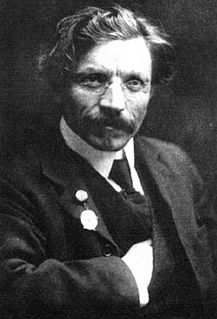A Quote by Albert Einstein
...the physicist cannot simply surrender to the philosopher the critical contemplation of the theoretical foundations; for, he himself knows best, and feels more surely where the shoe pinches...Physical conceptions are free creations of the human mind, and are not, however it may seem, uniquely determined by the external world.
Related Quotes
The adoption of the required attitude of mind towards ideas that seem to emerge "of their own free will" and the abandonment of the critical function that is normally in operation against them seem to be hard of achievement for some people. The "involuntary thoughts" are liable to release a most violent resistance, which seeks to prevent their emergence. If we may trust that great poet and philosopher Friedrich Schiller, however, poetic creation must demand an exactly similar attitude.
The person in peak-experiences feels himself, more than other times, to be the responsible, active, creating center of his activities and of his perceptions. He feels more like a prime-mover, more self-determined (rather than caused, determined, helpless, dependent, passive, weak, bossed). He feels himself to be his own boss, fully responsible, fully volitional, with more "free-will" than at other times, master of his fate, an agent.
The earth's becoming at a particular period the residence of human beings, was an era in the moral, not in the physical world, that our study and contemplation of the earth, and the laws which govern its animate productions, ought no more to be considered in the light of a disturbance or deviation from the system, than the discovery of the satellites of Jupiter should be regarded as a physical event in the history of those heavenly bodies, however influential they may have become from that time in advancing the progress of sound philosophy among men.
It is immediately apparent, however, that this sense-world, this seemingly real external universe - though it may be useful and valid in other respects - cannot be the external world, but only the Self's projected picture of it ... The evidence of the senses, then, cannot be accepted as evidence of the nature of ultimate reality; useful servants, they are dangerous guides.
Alienation as we find it in modern society is almost total… Man has created a world of man-made things as it never existed before. He has constructed a complicated social machine to administer the technical machine he built. The more powerful and gigantic the forces are which he unleashes, the more powerless he feels himself as a human being. He is owned by his creations, and has lost ownership of himself.
The fact that labour is external to the worker, i.e., it does not belong to his intrinsic nature; that in his work, therefore he does not affirm himself but denies himself, does not feel content but unhappy, does not develop freely his physical and mental energy but mortifies his body and his mind. The worker therefore only feels himself outside his work, and in his work feels outside himself.
The most remarkable discovery made by scientists is science itself. The discovery must be compared in importance with the invention of cave-painting and of writing. Like these earlier human creations, science is an attempt to control our surroundings by entering into them and understanding them from inside. And like them, science has surely made a critical step in human development which cannot be reversed. We cannot conceive a future society without science.



































